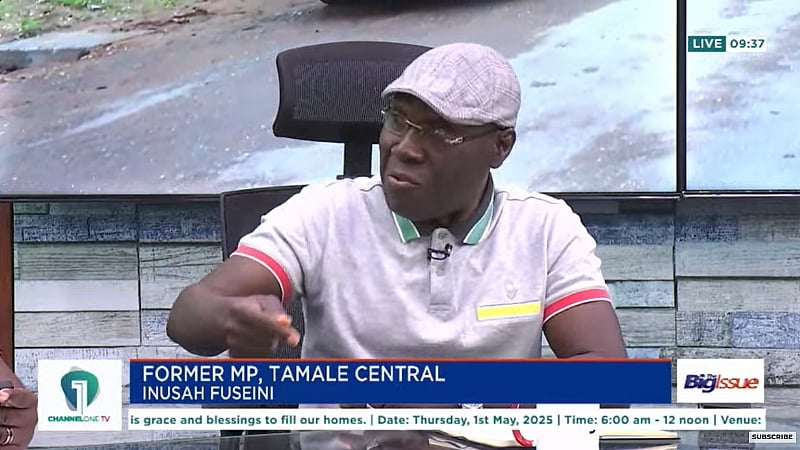Former Member of Parliament for Tamale Central, Inusah Fuseini, has said the immunity granted to Members of Parliament is not absolute but rather a convention that evolved over time, and not one explicitly grounded in law.
His comments come in the wake of a controversial incident on April 9, when officials from the National Investigations Bureau (NIB) stormed the residence of Assin South MP, Rev. John Ntim Fordjour, reportedly to question him over claims he made regarding two flights that allegedly entered the country under questionable circumstances.
While government officials have dismissed Fordjour’s allegations as baseless, the incident has sparked public concern and outcry from some minority members, who view the move as an act of intimidation against opposition voices.
Several lawmakers, especially from the minority, have argued that Fordjour, as an MP, should have been protected from such actions due to parliamentary immunity.
However, speaking on Channel One TV’s The Big Issues on Saturday, April 12, 2025, Inusah Fuseini provided context, asserting that parliamentary immunity, while recognized, is not legally unassailable.
“The immunities of members of parliament are not absolute. It is a convention that came into being when Abodakpi was arrested. And the person who drove the convention was Mike Oquaye. The convention came into being during Ayariga’s time. So, it is not in law.
“We argued that when you have a vindictive president who wants to go after the minority, he will decapitate them by pressing criminal charges against them. When this happens, you will be going to court and you will not be able to perform your duties.
“So, even though the immunity is there, it is not absolute. Because if it is to be made absolute, it will infringe against Article 17 of the constitution, which is equality before the law,” he stated.
—citinewsroom


